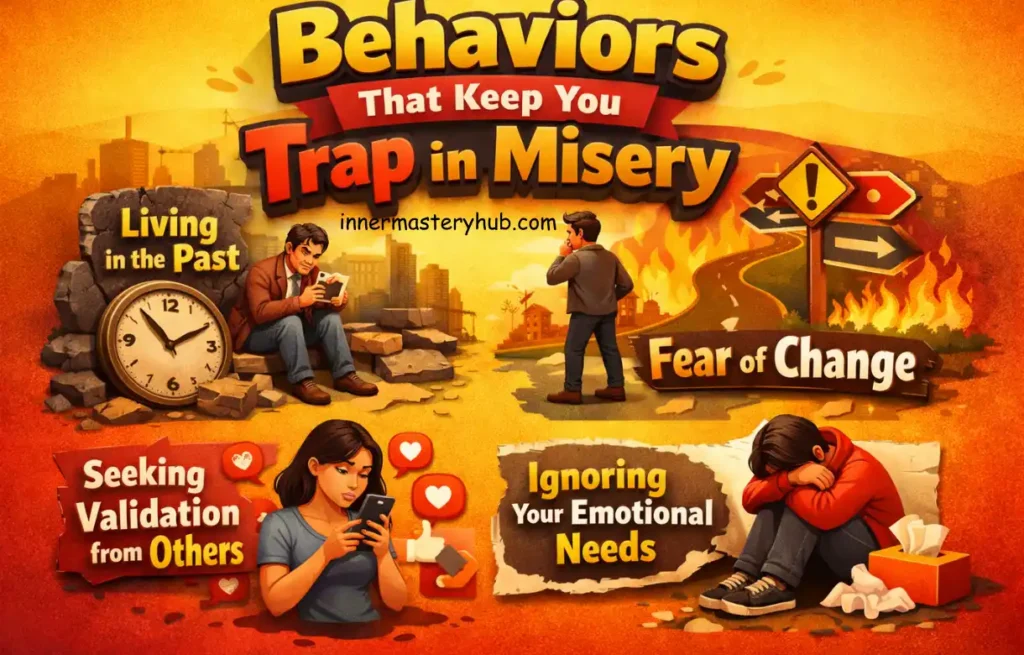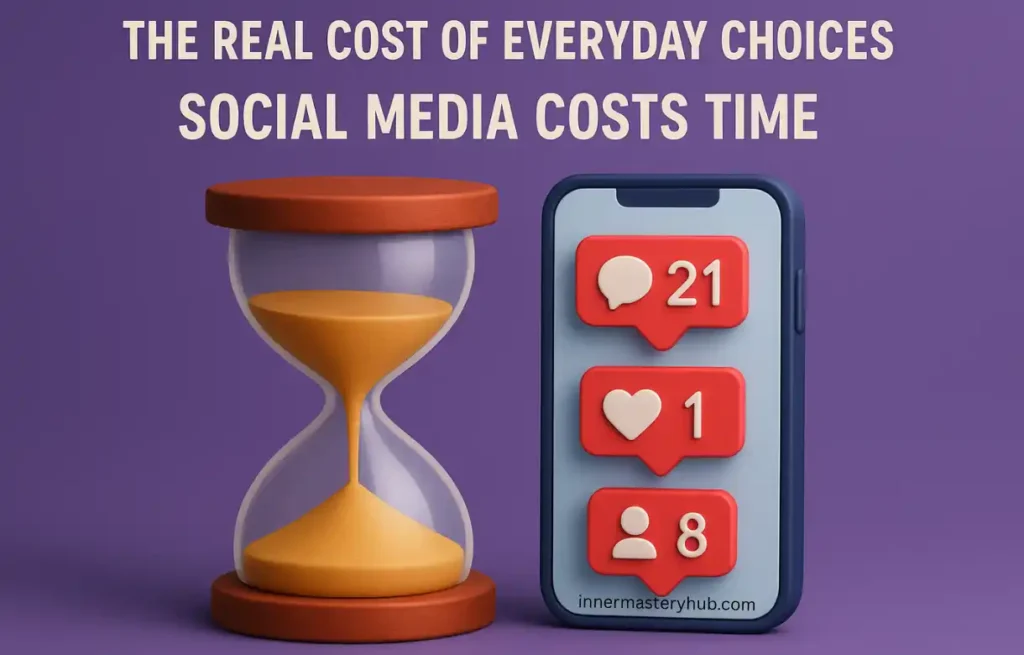Master The Locus of Control to Transform Your Destiny

Understanding the locus of control can illuminate human psychology. It shows our self-control perception. This psychological paradigm contrasts internal and external locus of control.
People with a high internal locus of control believe their actions can affect their future. In contrast, people with external locus feel that external forces shape their lives.
Understanding the locus of control helps understand the mind. It shows how we view our self-control. This psychological paradigm contrasts the internal and external locus of control.
With a high internal locus of control, people believe their activities can impact their future. However, persons with an external locus of control believe that outside influences shape their lives.
Clinical psychology uses the locus of control construct, a crucial component of social learning theory. This blog explores how these notions affect motivation, behavior, and mental health. Let’s begin!
Table of Contents
Internal Locus of Control (robust)
For those with a strong internal locus of control, their behaviors are mostly responsible for the occurrences in their lives. They believe they can influence their future by making choices and working hard. They believe patience and hard work, rather than chance, are the keys to success.
Instead of blaming internal or external sources for their failure, they view it as a chance to better themselves. A proactive attitude to problems, self-discipline, and increased drive are frequently associated with such a mindset. They frequently exhibit self-motivation, goal-orientedness, and confidence in bringing about change.
Atypical Expectancy Shifts
“Atypical Expectancy Shifts” are less frequent or uncommon shifts in people’s expectations, attitudes, or perceptions that might not follow normal trends. Several factors can cause these changes and can have particular effects on a person’s behavior, thought processes, and judgment.
Let’s look at a few examples to better understand anomalous expectancy movements. A successful businessman with a strong internal locus of control notion is John. He attributes his achievement to his strategic choices and diligent labor.
When his business fails due to an unexpected market meltdown, he may have an unusual shift in expectations towards an external locus of control, attributing the failure to uncontrolled economic causes rather than his activities.
On the flip side, we have Lisa, who has always believed that her life is shaped by fate and circumstances beyond her control, indicative of an external locus. After taking up a new hobby and excelling through dedicated practice, she might experience an atypical expectancy shift towards an internal, realizing that her efforts can lead to success.
These instances show how life-changing events can result in substantial changes to one’s locus of control, which can affect one’s outlook on life and mental health.
External Locus of Control
A person with an external locus of control believes that fate, luck, or outside occurrences affect much of their life. They believe external causes and events determine success or failure more than their actions.
If they fail an exam, they may blame the test’s difficulty rather than their preparation. If they succeed, they may credit luck rather than effort.
Let’s consider a couple of examples. Imagine Sarah, a student who studied hard for a test but still scored lower than expected. Instead of acknowledging that she might need to change her study habits or seek help, she blames the teacher for setting unusually tough questions.
In another scenario, imagine Tom, a sales executive who managed to close a big deal. Instead of attributing the achievement to his negotiation skills or diligent research, he credits his success to good luck or the client’s good mood.
These examples show how individuals with an external health locus out of their internal health locus tend to attribute their experiences and other health locus-related behaviors and outcomes to factors beyond their health locus.
Typical Expectancy Shifts
When a person’s experiences lead to a shift in their locus of control, expectancy shifts usually follow. For example, following a sequence of events in which their efforts result in favorable outcomes, an individual with a mostly external locus may change to an internal locus.
This change frequently occurs gradually as a result of a series of events that contradict their original beliefs and behavior. A person with a strong internal locus, on the other hand, might change to a more external control locus after encountering several circumstances in which their efforts failed to produce the expected outcomes.
A person’s motivation, sense of self, and general mental health can all be significantly impacted by these locus changes.
The role of locus of control in everyday life
The internal locus of control index affects how people view and conduct their lives. Example: Mary, a college student with a strong internal locus, may assume responsibility for her academic success.
She blames her lack of preparation rather than the test’s difficulty. She will improve her study habits to perform better.
This perspective may hinder Jack’s leadership growth since he may not make the necessary efforts to better his situation.
As shown, the locus of control affects how we view our strengths and weaknesses, which affects our daily behavior. It influences our motivation, decision-making, and life responses.
What are the two types of locus of control?
The two types of control refer to AS internal control and external.
Individuals with an internal locus believe that they have control over their own lives and that their actions significantly impact the outcomes they experience.
For instance, Linda, a diligent student, believes that her grades directly result from her study habits. If she receives a high quality, she attributes it to her hard work and thorough preparation. Conversely, if she gets a low rate, she blames it on her lack of or ineffective studying, encouraging herself to work harder in the future.
On the other hand, those with an external locus perceive that their lives are primarily influenced by outer factors they have no control over.
For example, James, a professional athlete, believes that his performance is primarily dictated by luck or circumstances beyond his control. If he wins a game, he attributes it to chance or a weak opponent. If he loses, he blames it on bad luck or unfair officiating rather than reflecting on how he could improve his skills or strategies.
A comparison of internal versus external locus of control
When comparing the internal locus of an external or more internal locus, it’s evident that both perspectives can significantly shape an individual’s attitude and response toward life events. For those with an often high internal or more external locus, like Linda, there’s a strong belief that their actions and decisions directly influence their outcomes.
This mindset encourages personal responsibility, promotes active problem-solving, and often leads to high motivation, as these individuals believe their efforts can effect change.
Individuals with an external locus, such as James, attribute outcomes to factors beyond their control only. While this mindset can sometimes protect individuals from experiencing guilt or self-blame after failure, it can also lead to passive behavior, reduced motivation, or feelings of helplessness, as their outcomes are perceived to be independent of their actions.
To illustrate, consider two employees dealing with job insecurity. With an internal locus, Tom might take proactive steps, such as expanding his skills or networking within his industry, believing his actions can influence his employment status.
Conversely, with an external locus, Susan might feel helpless or anxious, believing that her job security is entirely in the hands of the economy or company decisions, factors she perceives to be beyond her control.
Understanding these differences between two perspectives can be vital in various walks of life, including education, corporate settings, other health-related behaviors, mental health, psychology, and others. It helps tailor strategies to foster resilience, motivation, and personal growth.
Characteristics of an internal locus of control
People with an internal center of control have numerous key qualities. As they feel their decisions, actions, and efforts directly affect their lives, they tend to be self-confident and accountable. This idea often motivates them to act.
A second characteristic of people with an internal locus is that they are more persistent and goal-oriented.
They are inspired to create objectives for themselves and keep going when they encounter difficulties or setbacks because they think their efforts can result in the consequences they want. Instead of seeing obstacles as insurmountable, they are more inclined to see them as chances for personal development.
Third, these people are more self-assured because they believe they control their behaviors and life events. Increased skill and empowerment can make them more robust to adversity.
Last but not least, people who have an internal locus are typically more likely to research topics and pick up new abilities. Since they think that their knowledge and abilities affect their results, they are more inclined to actively look for learning and self-improvement chances.
Characteristics of an external locus of control
Those who have an external locus of control also have a number of unique traits. To begin with, individuals frequently believe that outside factors like fate, good fortune, or influential people have a big impact on their actions and life results. They may feel powerless to influence the circumstances and occurrences in their lives as a result of this mindset.
Second, they could blame events beyond their control for their success or failure instead of their work. Instead of crediting their hard work or talent for job advancement, they can say that it was due to their timing.
Third, because they may think that their efforts won’t have a big impact on the result, people with an external locus may be less persistent while facing difficulties. They may become less motivated and more prone to give up when presented with challenges as a result of this belief.
Lastly, these people frequently have reduced self-esteem and may feel hopeless or helpless in particular circumstances. Their conviction that results are mostly dictated by outside factors can cause them to feel anxious or frustrated, especially if they want control yet feel that it is out of their grasp.
Measurements of Locus Of Control
Numerous academic and psychological measures that have been proven to be effective can be used to measure locus of control. Julian B. Rotter created the Rotter’s Locus of Control Scale in 1966, and it is the most widely used scale for measuring locus.
Levenson published the Multidimensional Locus of Control Scale in 1981, and it is another popular control scale. Internal, powerful others and chance are the three dimensions into which this scale separates the locus of control. You may learn more about it here.
Note that these metrics reflect a person’s general inclination and may change over time and in other spheres of life.
Internal versus external control
Attributing events distinguishes internal from external control, or center of power. People with an internal or external locus of control think their actions matter.
They believe they can improve their condition with hard work and persistence. This idea often boosts self-discipline, motivation, and proactive organizational behavior problem-solving.
People with external control attribute results to fate, luck, or others’ choices. Therefore, they may feel powerless to change their situation. Passivity, diminished motivation, or annoyance when things don’t go as planned can arise from this mindset.
Neither viewpoint is fundamentally “right” nor “wrong.” Depending on personal characteristics and the situation, each may be advantageous or disadvantageous. A road to personal development and enhanced well-being can be found by comprehending one’s locus of control, which can also offer insightful information about behavior.
Men have a higher internal locus of control than women in certain research, whereas women have a stronger internal locus of power in other studies. Other research has shown that people’s locus of control shifts inward with age.
Internal and external locus examples
An example of an internal locus of control idea would be a professional athlete who feels that their preparation and training have a direct impact on their performance. One instance of an external locus of control is when a lottery player believes that their chances of winning are entirely dependent on chance and luck.
RELATED POSTS
Stop Being Nice: Why It’s Time to Set Boundaries
intuitive vs observant Power: 7 Times It Outshone Observation
People Hate Emotionally Immature Woman:10 Undeniable Reasons
FREQUENTLY ASKED QUESTIONS
Q.1 What is the internal locus of control in clinical psychology?
In psychology, an instance of internal locus of control is an employee believing that their promotion is a direct result of their hard work, dedication, and skill set. They attribute their success to personal effort and choices, fostering a sense of self-agency and empowerment.
Q.2 What is a locus of control in psychology?
In psychology, the locus of control is a concept that refers to an individual’s belief system regarding their abilities and behavior, the causes of their experiences, and, particularly, the extent to which they or external forces are responsible. It plays a critical role in how people understand their life events and influences their attitudes and behaviors.
Q.3 What is the locus of control activity?
The locus of control activity is an exercise used to identify an individual’s perceived control over their life events. It typically involves a questionnaire or scenarios where one has to attribute outcomes to internal or outer factors, thereby revealing their perceived locus of control: internal or external influences or all control relates to internal versus external control only.
Q.4 What is an example of locus of control with students?
In an educational context, a student with a solid internal and external locus of control might believe that their grades directly result from the time and effort they put into studying. Conversely, a student with an internal or external locus of control might attribute their degrees to the difficulty of the subject, the teacher’s instructional methods, or luck.
Q.5 What is an example of external locus control?
An example of an external locus of control is a person believing they didn’t get a job because of bad luck despite having prepared extensively for the interview. They attribute the positive outcome only to outer factors and believe their efforts had minimal influence.






